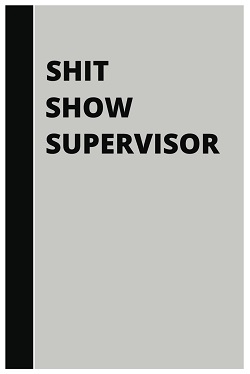


Ever thought about how many ways we use the word "shit"? It’s truly a linguistic chameleon, seamlessly fitting into various contexts as both a noun and a verb. Let’s dive into the many faces of this fascinating word!
As a noun, "shit" can be quite literal. Step carefully to avoid that dog poop on the sidewalk (don’t step in that shit)! But it also serves as a casual catch-all for just about anything—need that item over there? "Grab that shit."
In its plural form, "the shits," it takes on a less pleasant meaning, slang for diarrhea (I’ve got the shits). It's certainly a vivid way to describe an uncomfortable situation!
"Shit" also finds its way into more humorous or critical contexts. Consider expressions like "piece of shit," used to describe someone or something particularly worthless or troublesome. This usage is common in informal speech and is often employed to express strong disapproval or frustration.
As a verb, "shit" straightforwardly describes the act of defecation (I’ve got to shit). But it also expresses surprise in colorful ways (I shit myself or he shit bricks). These expressions vividly convey shock or astonishment, often in a hyperbolic manner.
When trouble looms, "shit" steps in to convey the gravity of the situation (I’m in deep shit, tough shit, or the shit hit the fan). It’s a go-to for signaling that things have gone awry. For instance, "the shit hit the fan" suggests a moment when chaos breaks loose, usually due to a problematic revelation or a significant mistake.
Criticizing something or someone? "Shit" is your word. That terrible meal you had? "The food was shitty." Displeased with someone? "He is a piece of shit."
But it’s not all negative. To boast, one might declare, "I’m the shit," while putting someone else down might sound like, "you ain’t shit." These expressions showcase the word’s ability to convey both self-aggrandizement and dismissal, depending on the context.
Adding an animal twist to "shit" can highlight traits: think "chickenshit" for cowardice, "batshit" for craziness, or "apeshit" for wild behavior. These variations add a colorful and descriptive flair to the language, making it more expressive.
When someone exaggerates, you might call them out with, "you’re full of shit," or challenge their statement with, "that’s bullshit/horseshit." These expressions are often used to call out dishonesty or exaggeration, emphasizing skepticism or disbelief.
Need to stress something? Draw out that vowel—"shiiiiit." Talking about a large amount? That’s "a shitload." These variations help convey intensity or magnitude, making the language more impactful and expressive.
So, where did this versatile word come from? Its roots trace back to the Old English "scite" (dung) and the Middle English "schitte" (excrement). The Oxford English Dictionary points to its Germanic roots, connected to the Dutch "schijten" and the German "scheissen".
Interestingly, "shit" started as a neutral term, devoid of vulgarity. A popular, albeit debunked, myth suggests "shit" as an acronym for "Ship High In Transit," supposedly indicating dried manure that could produce explosive methane gas if wet. However, this tale doesn’t hold up, as acronyms weren't common until the 20th century, and methane gas would have simply dispersed.
The word "shit" has played a significant role in shaping cultural attitudes towards language, humor, and taboo subjects. While still considered a profanity in many contexts, it has also become a source of humor and irreverence in popular culture.
From its use in stand-up comedy to its prevalence in movies and television, "shit" has found a place in mainstream media, often used to convey frustration, surprise, or emphasis in a relatable, if not always polite, manner. This usage reflects broader cultural shifts towards more relaxed attitudes about profanity in certain contexts.
Moreover, "shit" has been employed as a tool of rebellion and protest. Activists and artists use it to challenge social norms and push back against censorship, making it a potent symbol of free speech and creative expression. The casual and often irreverent usage of "shit" underscores its role in expressing dissent and questioning authority, reflecting its evolution from a simple term for excrement to a multifaceted word with deep cultural resonance.
Believe it or not, shit has had its moment of glory. During WWII, German soldiers in North Africa, plagued by dysentery, learned from locals that fresh camel dung was an effective remedy. Although the Germans weren’t keen on consuming it, they harnessed the beneficial bacteria from it. Camel dung even became a good luck charm, leading Germans to drive over it. The British, catching wind of this, planted land mines resembling camel dung. When the Germans caught on and avoided the dung piles, the British upped their game with mines that looked like run-over, seemingly safe, camel dung. The creativity in wartime knows no bounds.
The word "shit" is found in a myriad of expressions, each adding a unique flavor to our language. For example, "Get your shit together" means organizing oneself, whether it’s one’s thoughts, possessions, or life in general. "Shoot the shit" refers to engaging in casual, often pointless conversation. A "shithole" describes a particularly unpleasant place, while a "shitstorm" indicates a chaotic and troublesome situation.
The phrase "when the shit hits the fan" vividly describes a situation where trouble is inevitable and chaos ensues. This expression, along with others like "tough shit" (expressing unsympathetic acknowledgment of someone's misfortune) and "shit out of luck" (indicating a complete lack of options), showcases the word's adaptability in conveying complex human experiences and emotions.
Understanding the evolution and usage of the word "shit" also ties into broader discussions about cultural heritage and language. Cultural heritage encompasses both tangible and intangible forms, from monuments and artifacts to languages and oral traditions. Language, as a core component of cultural heritage, reflects societal values, historical experiences, and collective identity.
In this context, the transformation of "shit" from a literal term for excrement to a multifaceted word with diverse applications highlights how language evolves alongside cultural shifts. The preservation of language, including its colloquial and often controversial elements, is crucial in maintaining the richness and diversity of cultural heritage. Organizations like UNESCO emphasize the importance of protecting both tangible and intangible heritage to foster cultural identity and continuity.
The role of language in cultural heritage is further exemplified by its power to unite and differentiate communities. Words like "shit," with their nuanced meanings and varied uses, contribute to the richness of linguistic diversity. They reflect how communities adapt language to suit their evolving cultural landscapes. This adaptability underscores the importance of preserving linguistic heritage as a living, dynamic aspect of culture.
The global influence of the English language has carried words like "shit" into various cultures, sometimes retaining their original meanings and other times evolving into new forms. For instance, in some cultures, the direct translation of "shit" might not carry the same weight or connotation, leading to unique adaptations or equivalents that fit the cultural context.
In Japanese, for example, the word "kuso" serves a similar purpose but is used differently based on social norms and context. Such cross-cultural adaptations highlight the fascinating interplay between language and cultural identity. They also illustrate how swear words and colloquialisms travel and transform across linguistic boundaries, adding layers of meaning and cultural significance.
Humor often thrives on the edge of propriety, and "shit" has become a staple in comedic contexts. Comedians like George Carlin and Richard Pryor have famously incorporated "shit" into their routines to great effect, using it to challenge societal norms and provoke thought as well as laughter. The comedic use of "shit" often serves to break down taboos and encourage a more open discussion of topics that might otherwise be considered off-limits.
In literature, authors like Kurt Vonnegut and Charles Bukowski have used "shit" to add authenticity to their characters' voices, reflecting real speech patterns and attitudes. This usage helps create more relatable and believable characters, grounding their experiences in the gritty reality of everyday life.
Swearing, including the use of "shit," has evolved significantly over time. What was once considered highly taboo is now often seen as a normal part of everyday speech, at least in informal settings. This evolution reflects broader cultural changes, including a shift towards more relaxed attitudes about language and a greater acceptance of linguistic diversity.
Swearing can serve various functions, from expressing strong emotions to building camaraderie or even establishing social hierarchies. The versatility of "shit" makes it particularly useful in these contexts, allowing speakers to convey a wide range of feelings and attitudes with a single word.
From its humble beginnings as a term for excrement to its current status as a versatile and culturally significant word, "shit" exemplifies the dynamic nature of language. Its myriad uses in everyday conversation, literature, and media reflect broader cultural trends and societal attitudes. Whether used to express frustration, surprise, or humor, the word "shit" remains a testament to the power of language to adapt and convey the complexities of human experience.
So next time you hear or use the word "shit," remember its rich history and the surprising versatility that makes it a cornerstone of expressive language.